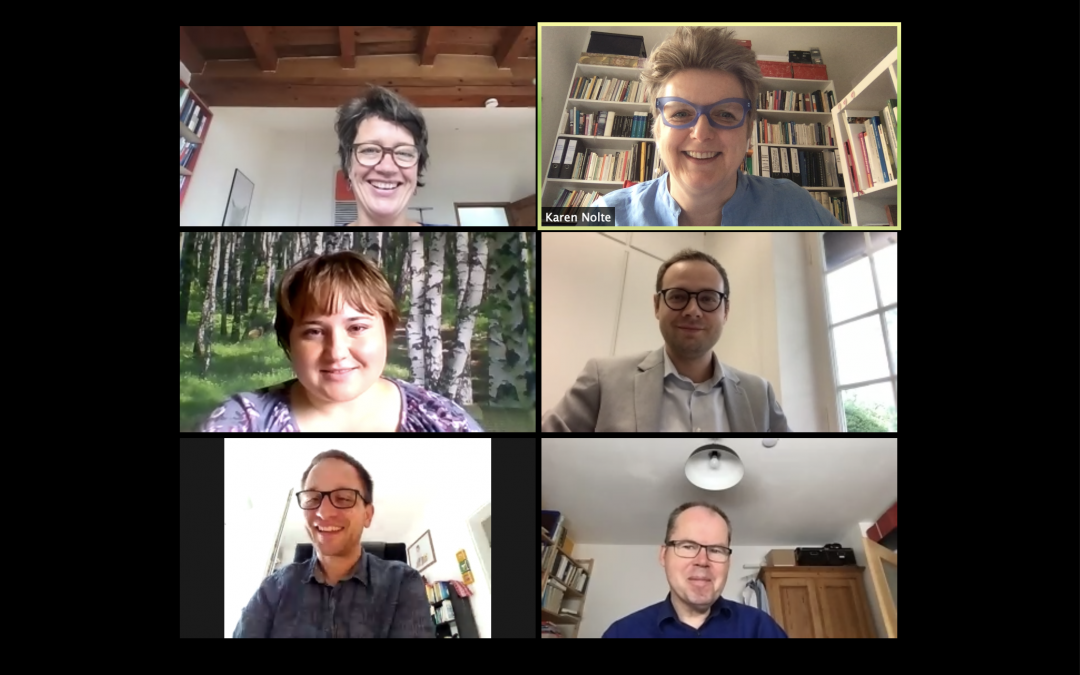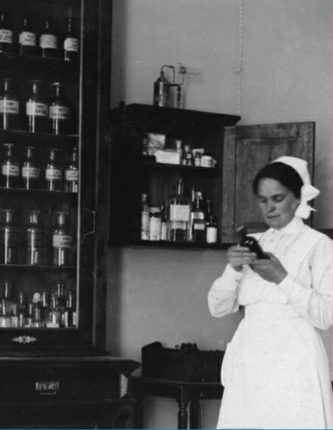Call for Abstracts: European Journal for Nursing History and Ethics 2023
FifthIssue 2023
The European Journal for Nursing History and Ethics is an interdisciplinary Open Access and peer-reviewed eJournal spanning the Humanities, Nursing Science, Social Sciences, and Cultural Studies. The journal is published online once a year with each edition having an individual theme and an open section that contains articles on various topics. In addition, the sections “Forum” and “Lost and Found” offer the opportunity to publish shorter articles on current debates or to present remarkable objects, texts, pictures or movies with relevance to nursing history and ethics and to discuss their significance.
The Journal is seeking contributions to
- the open section
- themed section
- Lost and Found
- Forum
Theme 2023: Suicide and its prevention: Historical and ethical perspectives in nursing
The theme for 2023 has been agreed in cooperation with six professional nursing organisations from The Netherlands and the European Association for the History of Nursing (EAHN).
Deadline for abstracts: July 31rst, 2021
Deadline for manuscripts: February 25th, 2022
Suicide, suicidal ideation, and suicidal behaviour may be studied from several perspectives. It may be seen as an individual psychological pathology, as a family and societal issue, or as an ethical concern. Hence, many disciplines have studied suicide and its prevention. As is known from research, suicide rates increase with a time lag in the wake of crises. Accordingly, the topic is more likely to become more topical in the coming years as a result of the SARS-CoV-2 pandemic and the associated social and economic crisis. The special issue of the eJournal will address historical and ethical perspectives and examine how they influence the theory and the practice of nursing in both general and mental healthcare settings.
The special issue will explore the ways in which nurses have encountered and responded to suicide in mental health and general healthcare settings, in different social and historical contexts, and among particular groups, such as people with a depressive illness, people with a drug dependence, and soldiers and nurses during times of war. It will also review and examine how the nursing profession has addressed the impact of suicide on nurses themselves, and consider issues facing nurses as they respond to suicidal ideation, care for people following suicide attempts, or work with the bereaved.
Possible historical topics are:
- The psychiatric and/or psychological concepts that determined the interpretation and handling of suicide and patients with suicidal ideation, and the extent to which these changed the way suicidality was and is handled in nursing
- The theoretical and practical education of nurses about care for suicidal patients
- The role of nurses with regard to suicidal patients and aftercare of the bereaved
- The influence of care for suicidal patients on the daily work and the professional self-image of nurses
- The division of labour between nurses and other professions with regard to suicidal patients
- The role of religious beliefs and ethical views in dealing with suicidal patients
- The support for or disciplinary measures against nurses who had been exposed to suicide
- Suicidal behaviour among nurses themselves
Possible ethical questions to consider:
- What tasks and responsibilities did and do nurses assume in dealing with suicidal persons and what specific ethical challenges did and do they face?
- How did and do questions of nursing ethics and the attitude of nurses in dealing with suicidal patients differ, depending on their care setting, for example, the acute wards in general hospitals, psychiatry, palliative care, nursing homes?
- How were and are suicidal ideations by patients in general or psychiatric hospitals and by nursing home residents discussed in the context of nursing ethics?
- Which groups of patients were and are the focus of the discussion on nursing ethics with regard to suicide, for example, children and adolescents, people with mental illnesses or people with a terminal physical illness?
The aim of the special issue is to bring historical and ethical research on suicide and its prevention in nursing into dialogue with each other.
Please note the following remarks on the concept of the European Journal for Nursing History and Ethics:
The journal creates a dialogue between the history and the ethics of nursing, while providing new impulses for advancing the subfields of the history as well as the ethics of nursing. Historians are asked to include the ethical dimension of the topic into their research project; researchers interested in ethics are requested to reflect on the historical dimensions of their projects. This does not mean, however, that articles on ethics should be preceded by a historical overview in the style of a manual. Rather the latest developments and socio-political debates that have led to the current issues in the ethics of nursing should be put in their historical context and be used in the analysis. Likewise, papers on the history of nursing should address ethical questions within the historical context or refer to current issues in the ethics of nursing. The journal publishes research both on European History and the history of the reciprocal relationships and interplays of European and non-European societies.
The journal only publishes original contributions. When submitting their manuscript, authors agree that their text has not already been submitted or published elsewhere.
Please submit your abstract (max 500 words) in English and separately a short CV by July 31rst 2021 to Prof. Dr. Susanne Kreutzer: kreutzer@fh-muenster.de and Prof. Dr. Karen Nolte: karen.nolte@histmed.uni-heidelberg.de



